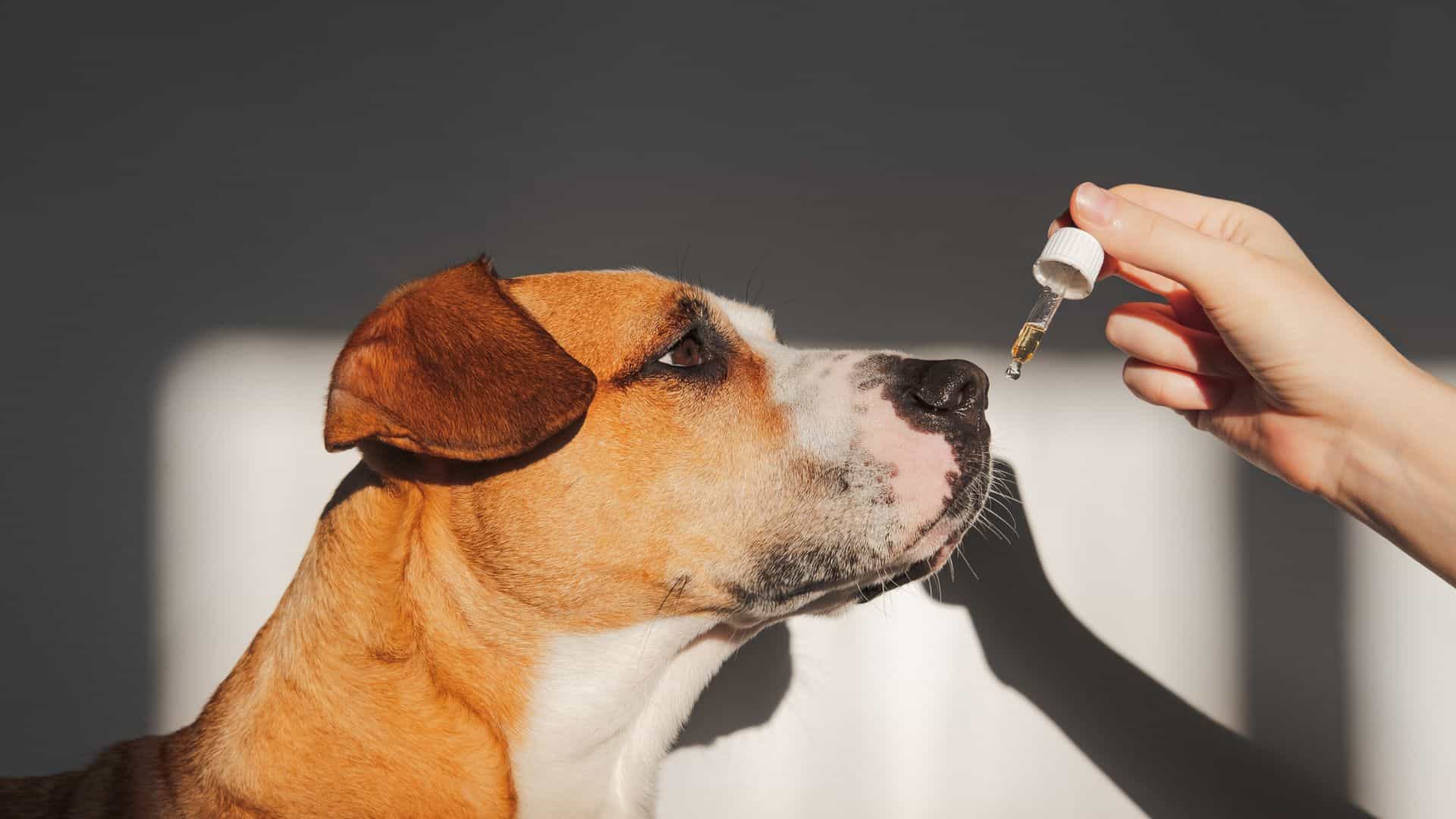Dogs are no strangers to stress and anxiety. They experience it almost as much as the average human does, but can have a harder time dealing with it.
Anxiety meds exist, but sometimes they may be too strong for some milder cases where the downsides may outweigh the potential benefits.
For that reason, we’re often recommended to simply provide our dog with love and affection, but, at times, that fails to make any significant difference.
That’s why some milder, natural alternatives exist as potential and somewhat viable options, each with their own set of benefits like melatonin, pheromones or slight lifestyle changes.
Naturally, they’re not meant to be used as replacements for more serious issues where prescription medication is advised.
Before use of any methods, it’s always good to consult a vet on its viability and potential harm.
Now, let’s see what these natural sedatives are then, shall we?
1. Pheromones
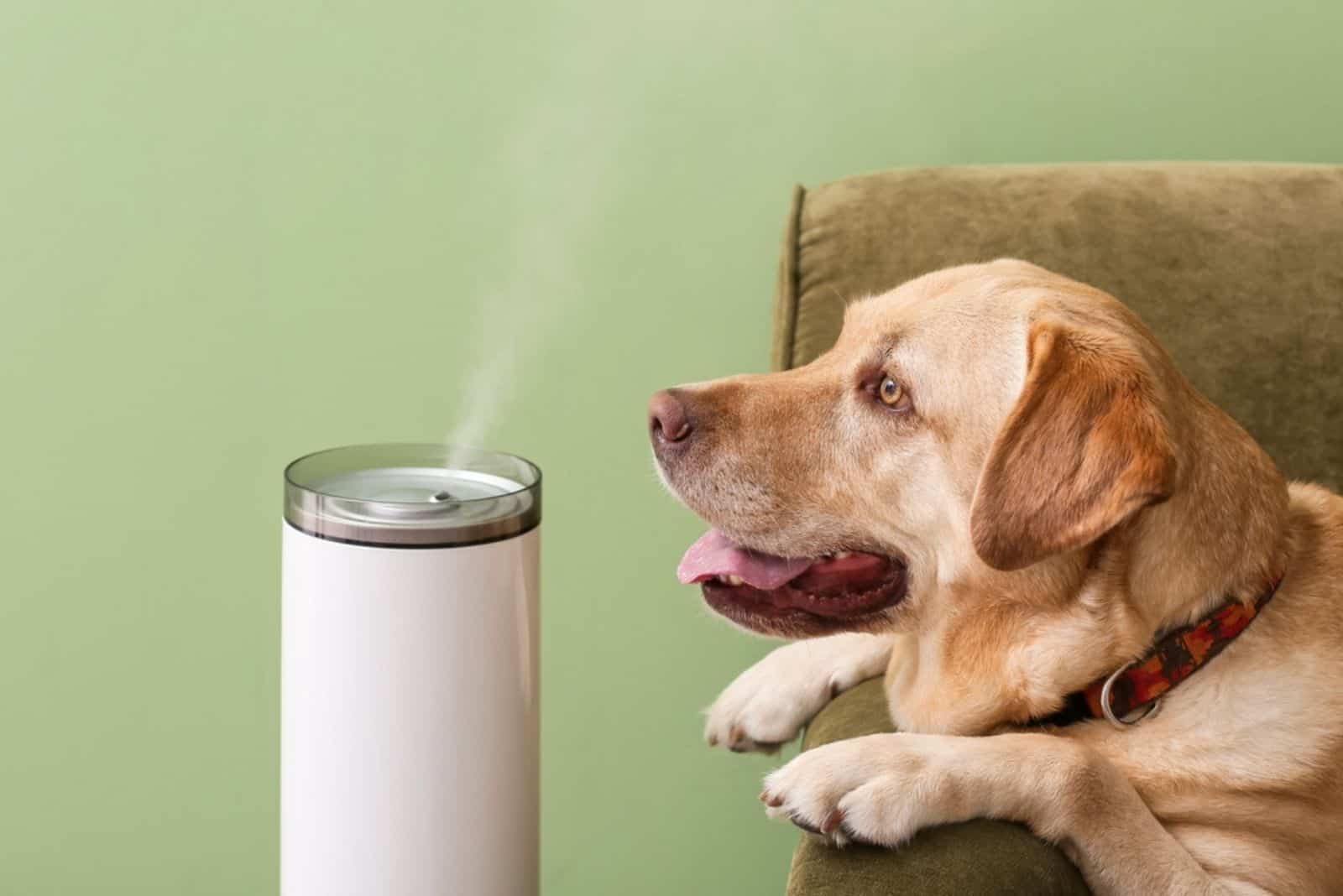
Pheromones are one of the main ways dogs can communicate another creature’s emotional state, allowing them to react accordingly.
It’s a more intricate way of information sharing that transcends language barriers which works thanks to their incredibly advanced olfactory senses.
Said pheromones can induce different emotional reactions in dogs which is the point here.[1]
One pheromone in particular, the one that canine mommas excrete when calming their good little puppers, can be an excellent natural sedative.
Normally they’re synthetically made as extracting it from an animal is quite difficult, then they’re used in diffusers to help spread it in the air in a less concentrated form.
2. Melatonin Supplements
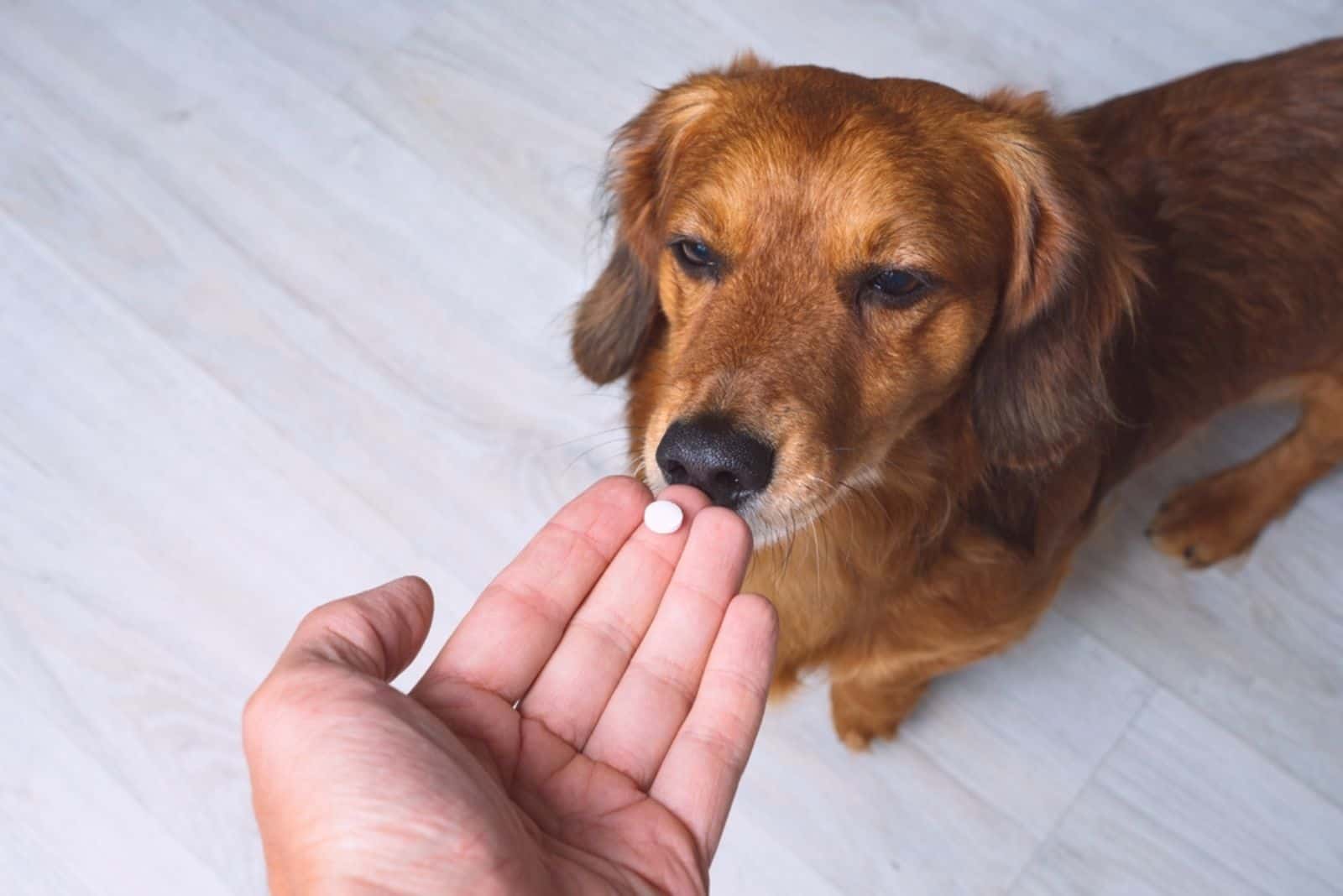
Melatonin is a naturally occurring hormone that can be found in humans and dogs alike.
It’s what tends to make us sleepy at night and helps us calm down and fall asleep in a timely manner, helping maintain that biological clock.
While a great sleep aid, it can work wonders in anxiety relief and is safe to consume without much risk of any adverse side effects.[2]
The only one is usually drowsiness, but that may or may not show up, depending on how the dog’s body reacts to it.
The one other issue is that it takes a while to start working, so it’s not really something you can take for an unexpected bout of anxiety, but rather a timed one.
Be it to help suppress a fear of vacuums when you have to clean the house or helping your pupper preserve his sanity during fireworks.
3. A Change In Diet

If you’re looking to reduce your dog’s stress levels, then a simple dietary change can do the trick, albeit a temporary one.
There are several foods out there that can help mellow a dog out, namely ones that contain the amino acid L-tryptophan, one that’s often found in turkey meat.
Ask your vet how you should go about incorporating it into your canine companion’s meal plan and for how long.
4. Physical And Mental Stimulation
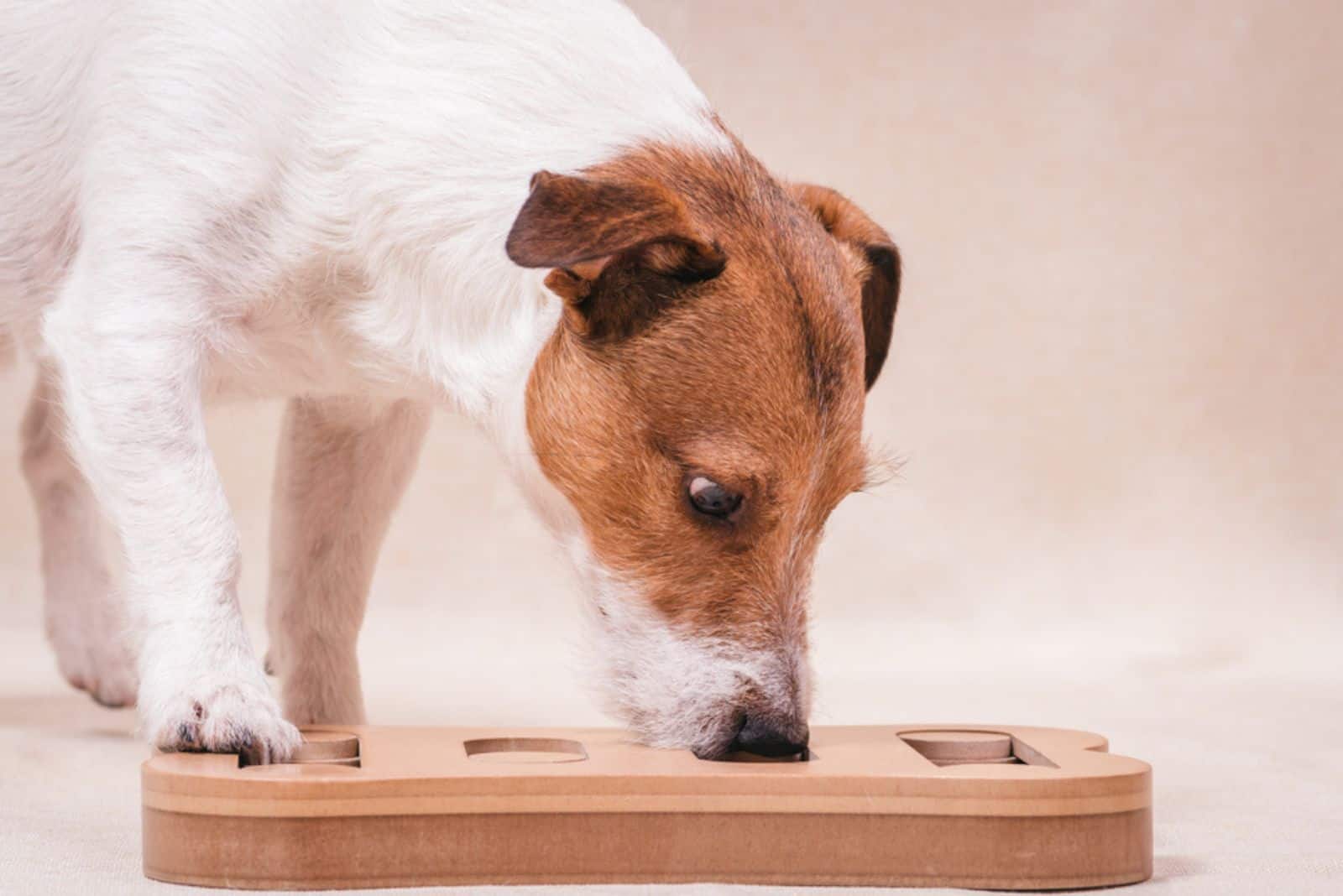
Just like how for us humans one of the best methods of long term stress level reduction are exercise and hobbies, the same can be said for dogs as well.
More physical exercise will release more of those feel-good hormones as will some form of mental stimulation like puzzle-solving.
The source for your dog’s anxiety may just be that he’s not getting enough exercise in your daily interactions, so try working on that and see if things change.
5. Grooming And Pampering
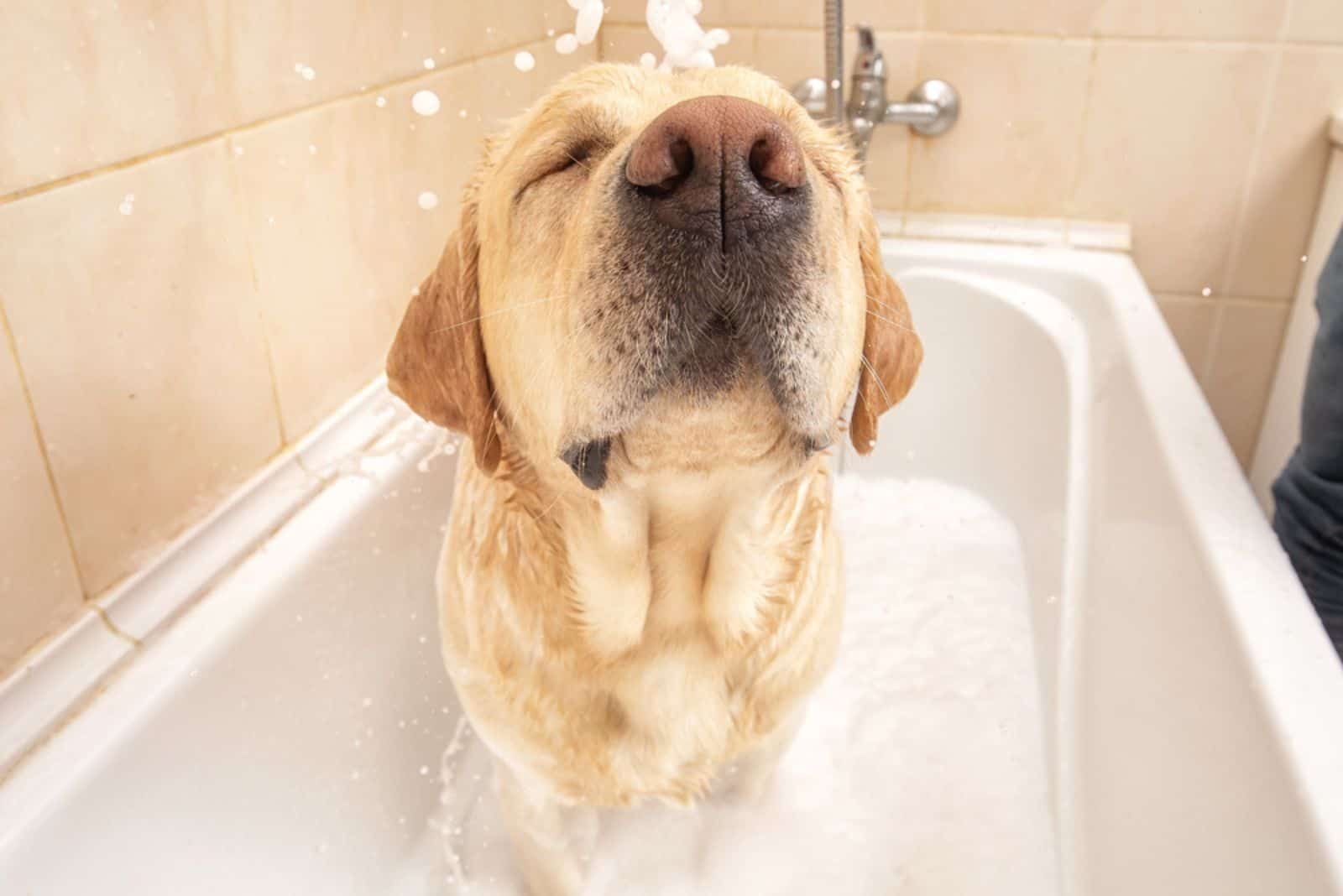
Everyone likes being pampered and tended to, and dogs are certainly at the forefront of that.
Grooming to a lesser degree, depending on the dog’s preferences, but something in a similar vein like a massage or a good belly rub works just as well.
Anything that normally makes him happy and gets him relaxed, so treat your pooch to a nice spa day and see if that helps improve his stress-related issues.
Will These Methods Work?

Not all the time. It usually depends from dog to dog. The pheromones likely have the best chance of success while others may work, albeit not to the extent that you’d want them to.
It also depends on how problematic the anxiety and stress issues are.
In any case, I suggest talking to your dog’s vet about it and see what he has to say.
He’s a trained professional and he’ll be able to prescribe the most effective method of stress relief for your pupper.
In Conclusion
There are plenty of natural sedatives for dogs, some more physical while others more abstract ideas, but they all work to a degree.
They’ll help sort out smaller scale stress issues with relative ease and help keep your dog nice and calm.
However, they’re not meant to replace any proper anxiety medication in a more serious problem.
Each has their place on where they should be used and should be kept as such.
If you have any doubts on whether or not you should resort to more natural or traditional sedative forms, always ask the vet beforehand.
It’ll save you and your dog the trouble of dealing with a potentially ineffective method and wasting time.
Until next time, pet parents.
READ NEXT: 5 Ways How To Keep German Shepherd Calm At Vet
References:
[1] Young-Mee K., Jong-Kyung L., A.M. Abd el-aty, Sung-Hee H., Jae-Hoon L., Sang-Mok L. (April, 2010.), Efficacy of dog-appeasing pheromone (DAP) for ameliorating separation-related behavioral signs in hospitalized dogs, DOI
[2] Domingo R.-C., Ginés S.-C., Amina El-M., Marino B. A. (August, 2022.), Essential Oils and Melatonin as Functional Ingredients in Dogs, DOI
